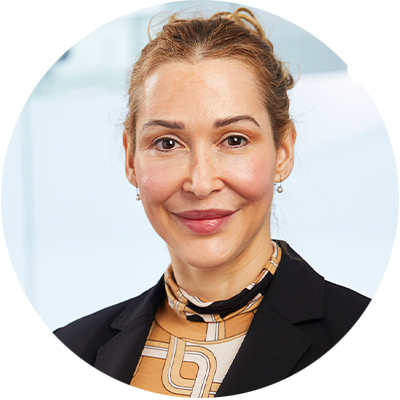Biobanks are essential for good and equal care, clinical research, and Sweden's competitiveness in Life Science. With the help of biobank samples, it is possible to prevent or alleviate the effects of public diseases, epidemics, and pandemics, which we clearly experienced during covid-19. Collaboration between all stakeholders in Life Science is key.
Samples that are saved in our regional biobank are foremost for the patient’s future care. These samples can be compared to newly taken samples for a more certain diagnosis and the correct treatment and they can be crucial to genetical relatives regarding inheritable diseases. Of course, all sample collections are also essential for ethically approved medical research. In fact, thousands of samples are collected every day within our routine clinical processes to provide the right therapy or for research purposes. In Sweden, more than 150 million samples are stored in regional biobanks, with an annual growth of about three million samples. A biobank is responsible for managing human biomaterial, and we now look forward to a new Biobank Act in July which will, among other things, further strengthen the integrity of the individual and widen the scope for research application.
The biobank in Stockholm region is the largest in Sweden. It constitutes an extensive infrastructure with processes for handling patient consent, regulatory assessment, collection, storage, and withdrawal of samples including study support and pre-analytic services. We have implemented healthcare integrated biobanking infrastructures for research on several geographic sites for both liquid and tissue samples. This means that our biobanking platform is integrated to the medical diagnostic platform of the hospital. The advantages are many: it is resource effective, it offers nationally standardized processes, it is safe, and including, meaning that additional patients can be included into the study disregarded of where they live in the country. To meet the demand of handling larger studies in Stockholm and shorten lead times, we also offer full automatization of collection, storage, and withdrawal of biobank samples for research at the Karolinska University hospital site in Solna.
Our operations are fundamental for the medical development and medicine drives the development of biobanks. For precision medicine in particular the proximity to patients and the hospital infrastructure are critical. But biomarker studies in human biomaterial also demands access to samples of high quality and safe, standardized processes for sample handling. The regional biobank in Stockholm offers means to meet those demands by the healthcare integrated biobanking platform and standards through quality management system and accredited operations. Thus, research results can be reproducible based on smaller patient bases - In my mind, the regional biobank has the capability of constituting that interdisciplinary interface between routine medicine, translational medicine, and precision medicine and to be the facilitator regarding access of stored sample information.
So, biobanks do have a critical impact on therapy and clinical research. But for us to fully succeed we need increased collaborations. It is when all partners within life science (Healthcare, Academia, the pharmaceutical industry, and patient organizations) work together that collection of samples continues and samples are used to their best advantage. And it is then, and only then, new possibilities can arise.

